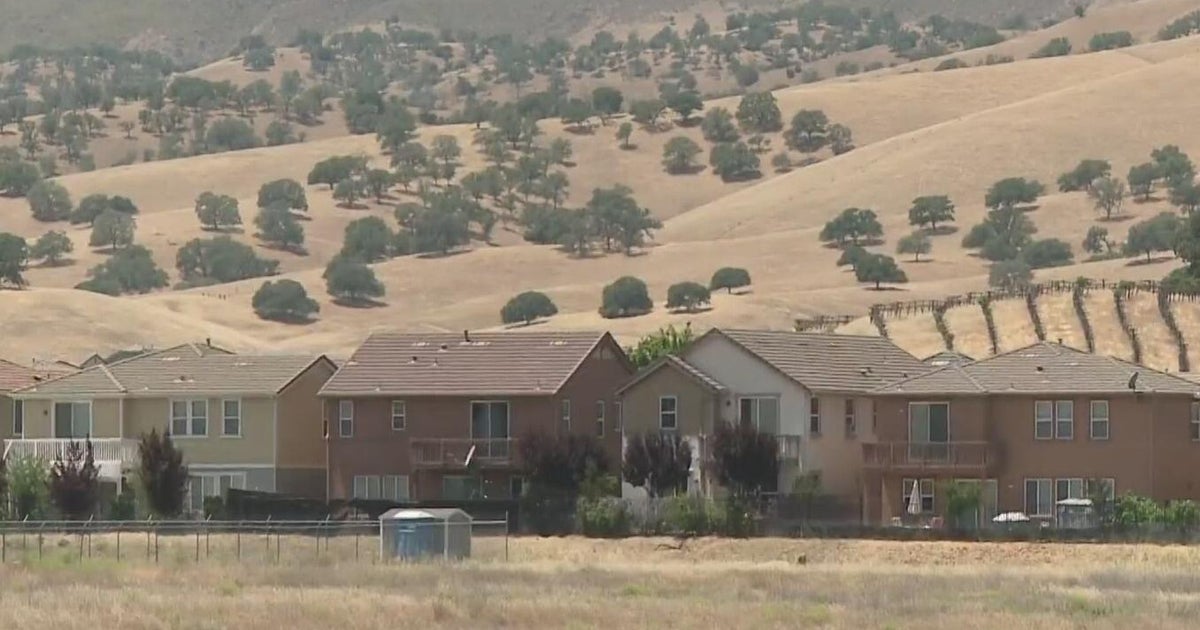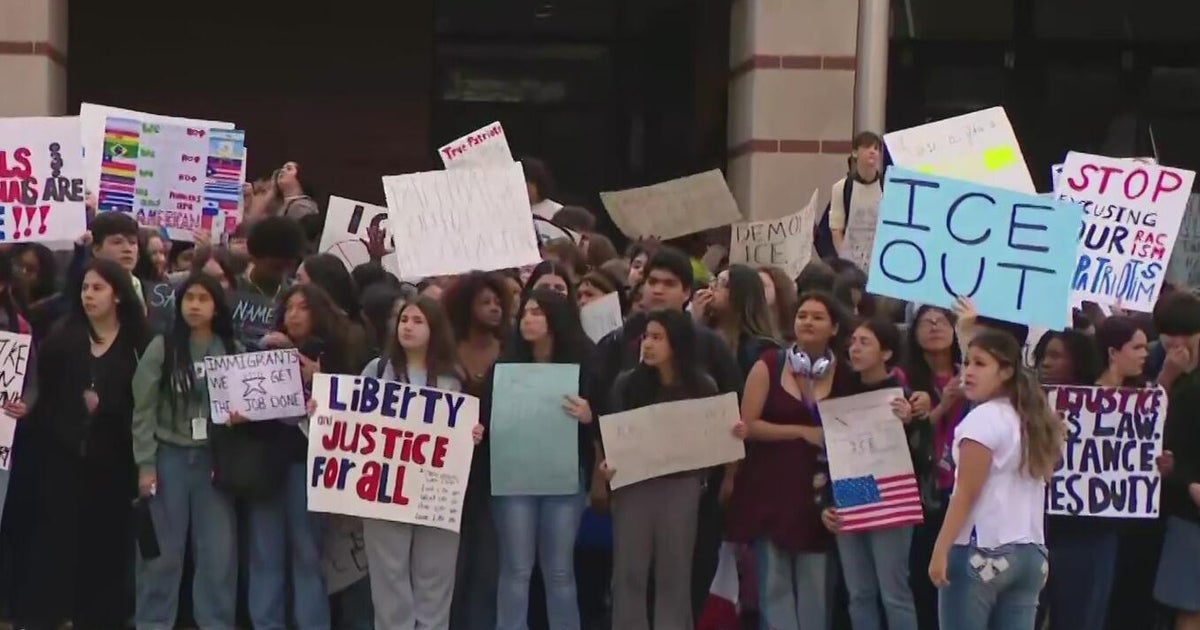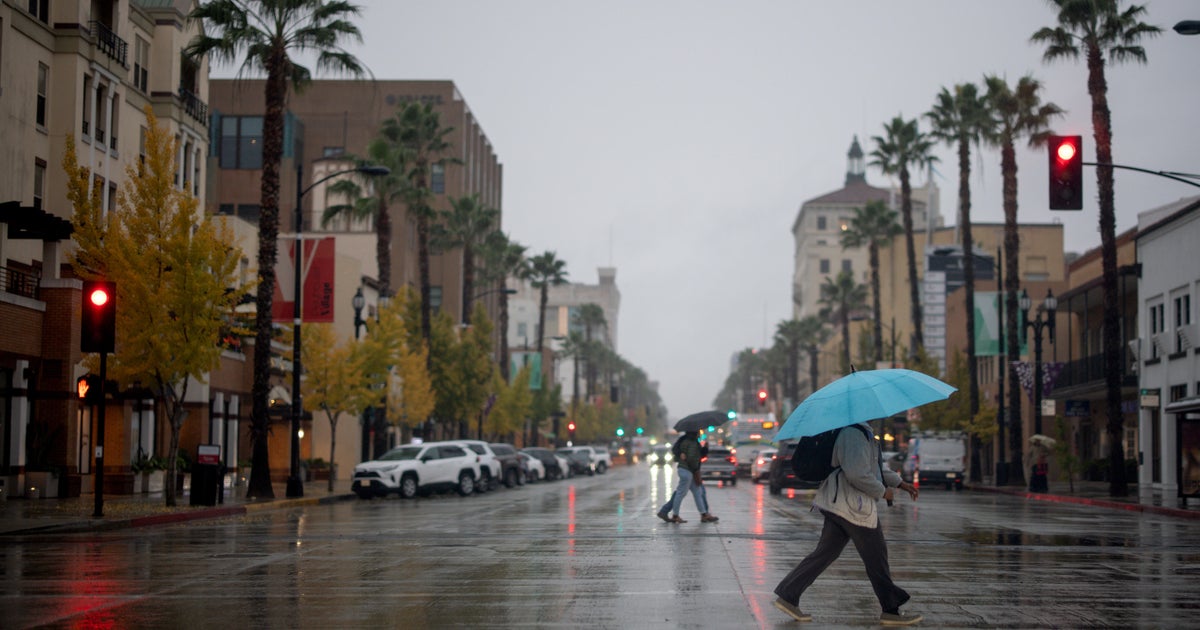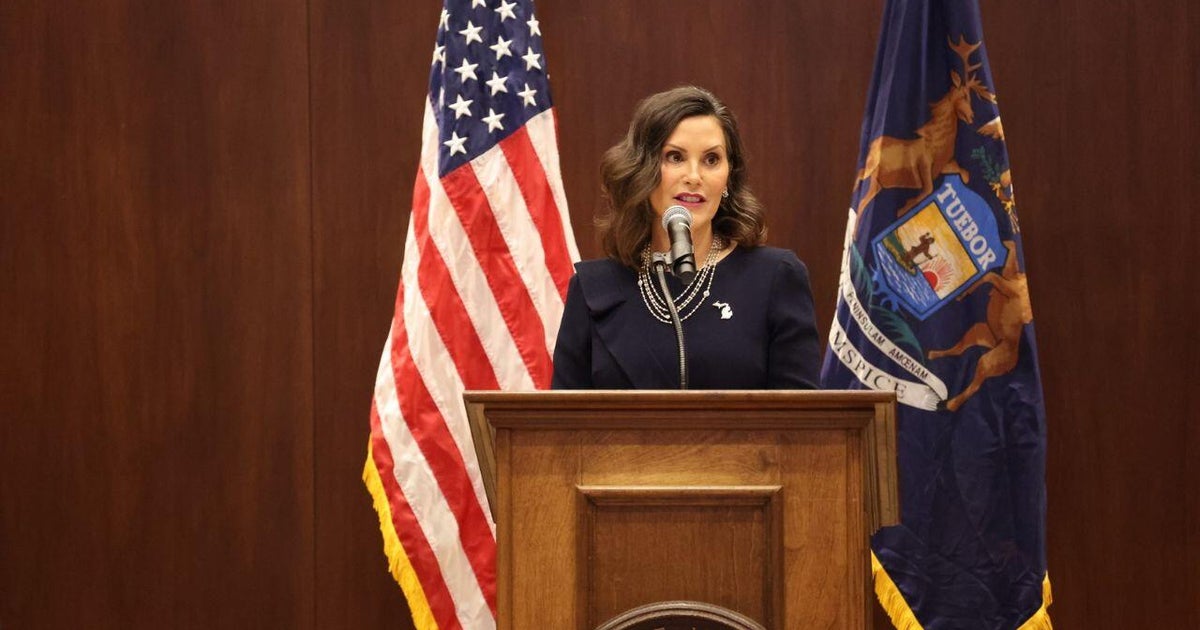California Wants To Stick More Water Agencies With Delta Tunnels Cost
SAN FRANCISCO (AP) - Dozens of water agencies and millions of families and farmers would be on the hook for building two giant tunnels to carry Northern California's water southward under new plans to shore up funding for Gov. Jerry Brown's $16 billion project.
The proposal that expands who pays for the state's biggest water project in more than a half-century could mean higher rates for millions of Californians who already get the precious resource through the complex state and federal systems of aqueducts, pumps, canals and dams.
It pivots from longstanding state and federal assurances that only water districts that seek to participate would pay for the tunnels, an ambitious re-engineering of California's complex north-to-south water system.
The Associated Press obtained new documents from the state's largest agricultural water agency and confirmed the expanded funding demands in phone and email interviews with state and local water officials.
Water districts for the Silicon Valley, the farm-rich Central Valley and cities in Southern California are due to vote in coming weeks on whether to take part in the project.
While many in Southern California - as one of the main beneficiaries - support the planned tunnels, a few dozen people rallied Monday at Los Angeles City Hall to urge the city to oppose it.
"We're going to have huge construction costs, huge debt costs that we're going to have to carry," said Liza Tucker, an advocate with a group called Consumer Watchdog.
With no major water district yet committing to help pay for the tunnels amid uncertainty about their costs and benefits, the state now contends that dozens of local water agencies would be obligated to foot the bill under their existing contracts. That would mean higher rates for their customers, unless the agencies could find another water contractor to buy out their share of the project's cost.
While speculation of that arrangement has swirled privately, "this is the first acknowledgement that we've heard" from the state that those water agencies would be on the hook, said Paul Gosselin, director of Northern California's Butte County water district.
His agency would get no water from the tunnels and has been seeking written state and federal guarantees that its customers would not have to pay for them. He's gotten no such assurances.
"Any of these funding mechanisms has been in a black box - none of it's been described to us, the contractors or the public," Gosselin said.
Brown's administration intends to exclude from the funding obligation a half-dozen Northern California water districts, like Gosselin's, that would not benefit from the tunnels, although just how hasn't been worked out, said Lisa Lien-Mager, spokeswoman for the state Natural Resources Agency.
The two tunnels would tap into Northern California's Sacramento River to provide more reliable supplies for points south. Brown says the tunnels would modernize the existing water delivery system built under his father, then-Gov. Pat Brown. The younger Brown is pushing to launch his water project before leaving office next year.
But it's been beset by controversy. Opponents say the tunnels could further threaten struggling native species and drain Northern California dry. Federal auditors also said last week that authorities improperly used $85 million in taxpayer money for the project.
The state's newly revealed funding plan hinges on its contention that the tunnels would be an update, not a new project. As such, the 29 water districts that get water from the existing half-century-old State Water Project would have to bear the costs of the new tunnels, state officials said.
For any clients that decide "not to participate, it would be up to them to reach an agreement" with another water contractor to take on their share of the cost, Lien-Mager said.
Asked if California intended to cut off water deliveries to districts that refuse either option, Lien-Mager said, "Opting out would not affect their existing contracts, but their actual water supplies from the SWP could become less reliable in the future."
"That's what we're being informed - our contract ends if we don't participate," said Richard Santos, a board member of the Santa Clara Valley water district, which supplies water to Silicon Valley.
If it plays out that way, Santos said, he will fight.
"If they say they'll cut off our allocations if we don't participate, then let the courts take it on," he said.
The funding arrangements also are described in documents released Thursday by Westlands Water District, which covers 1,000 square miles of the Central Valley, the richest U.S. agricultural region. With strong ties to Washington, the rural water district is one the most politically influential in a state where water is the most fought-over resource.
Westland says in a new report to its board that the tunnels' costs "will be allocated to all state water contractors in proportion ... to their contract amount," meaning how much water they currently get from the state.
A staff recommendation that the Westlands board could vote on Tuesday calls for Westlands to sign on to the mega-project - on two conditions.
One, which is spelled out in the meeting documents, says water agencies that get their supply from the separate, federally run Central Valley Project should also be compelled to help foot the bill for the tunnels. The second is that California not impose "unreasonable" restrictions on the amount of water Westlands can take from the Sacramento River.
___
Associated Press reporter Christopher Weber in Los Angeles contributed to this story.
Copyright 2017 The Associated Press.







